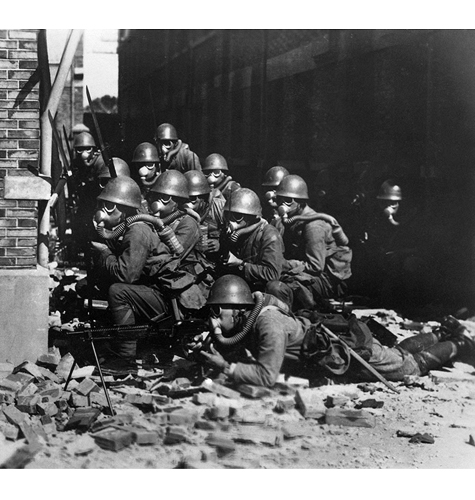In a draft version of a dissent memo filed with the State Department’s senior leadership, dozens of diplomats and other mid-level officials called for military strikes against President Bashar al-Assad of Syria. The document was provided to The Times by a State Department official on condition that the names of the signers not be published.
The State Department’s Dissent Channel was created “to allow its users the opportunity to bring dissenting or alternative views on substantive foreign policy issues, when such views cannot be communicated in a full and timely manner through regular operating channels or procedures, to the attention of the Secretary of State and other senior State Department officials in a manner which protects the author from any penalty, reprisal, or recrimination.” Note that management, administrative, or personnel issues that are not significantly related to matters of substantive foreign policy may not be communicated through the Dissent Channel according to the Foreign Affairs Manual.
There is a reason we don’t hear often about the messages sent through the “dissent channel”:
Freedom from reprisal for Dissent Channel users is strictly enforced; officers or employees found to have engaged in retaliation or reprisal against Dissent Channel users, or to have divulged to unauthorized personnel the source or contents of Dissent Channel messages, will be subject to disciplinary action. Dissent Channel messages, including the identity of the authors, are a most sensitive element in the internal deliberative process and are to be protected accordingly.
Neither the identity of a Dissent Channel user nor the contents of any Dissent Channel message may be shared with anyone outside of the procedures as outlined in 2 FAM 074.1, paragraph (b)
We understand that in 1977, the Executive Secretariat logged in some 32 Dissent Channel messages. By contrast, in 2005, you apparently could count by the fingers of one hand the number of Foreign Service professionals who used the Dissent Channel.
In 2009, USA TODAY (October 12, 2009) publicly reported the use of the dissent channel on a USAID program in Pakistan (see Dissent Channel: USAID/Pakistan Program.
Probably, one of the more famous use of the dissent channel was one signed by 20 diplomats on the U.S. policy toward East Pakistan, also known as the Blood Telegram, the subject of the book by Gary Bass. Archer Blood was our top diplomat in Bangladesh. He was the Consul General to Dhaka, East Pakistan and was famous for sending the strongly-worded dissent telegram protesting against the atrocities committed in the Bangladesh Liberation War. [See cable: Dissent From U.S. Policy Toward East Pakistan Cable (PDF); Also see Wanted: Patron Saint for Dissenting Diplomats).
On June 16, NYT’s Mark Lander reports that dozens of diplomats have signed a dissent memo over the administration’s Syria policy, and that a State Department official provided a draft of the dissent memo to the newspaper:
More than 50 State Department diplomats have signed an internal memo sharply critical of the Obama administration’s policy in Syria, urging the United States to carry out military strikes against the government of President Bashar al-Assad to stop its persistent violations of a cease-fire in the country’s five-year-old civil war.
The memo, a draft of which was provided to The New York Times by a State Department official, says American policy has been “overwhelmed” by the unrelenting violence in Syria. It calls for “a judicious use of stand-off and air weapons, which would undergird and drive a more focused and hard-nosed U.S.-led diplomatic process
[amazonjs asin=”B01H628EF2″ locale=”IT” title=”Syria: Peace, Bread and Homeland (English Edition)”]
Pubblicazione gratuita di libera circolazione. Gli Autori non sono soggetti a compensi per le loro opere. Se per errore qualche testo o immagine fosse pubblicato in via inappropriata chiediamo agli Autori di segnalarci il fatto è provvederemo alla sua cancellazione dal sito









